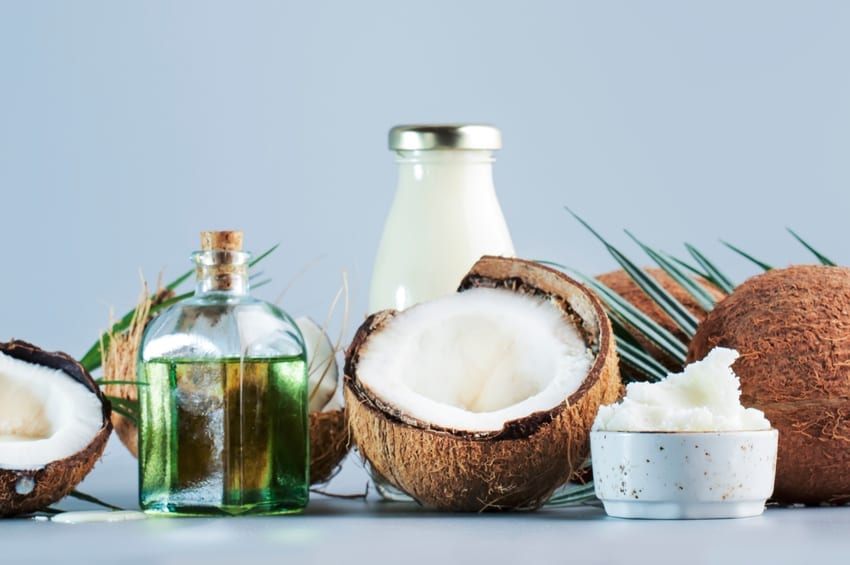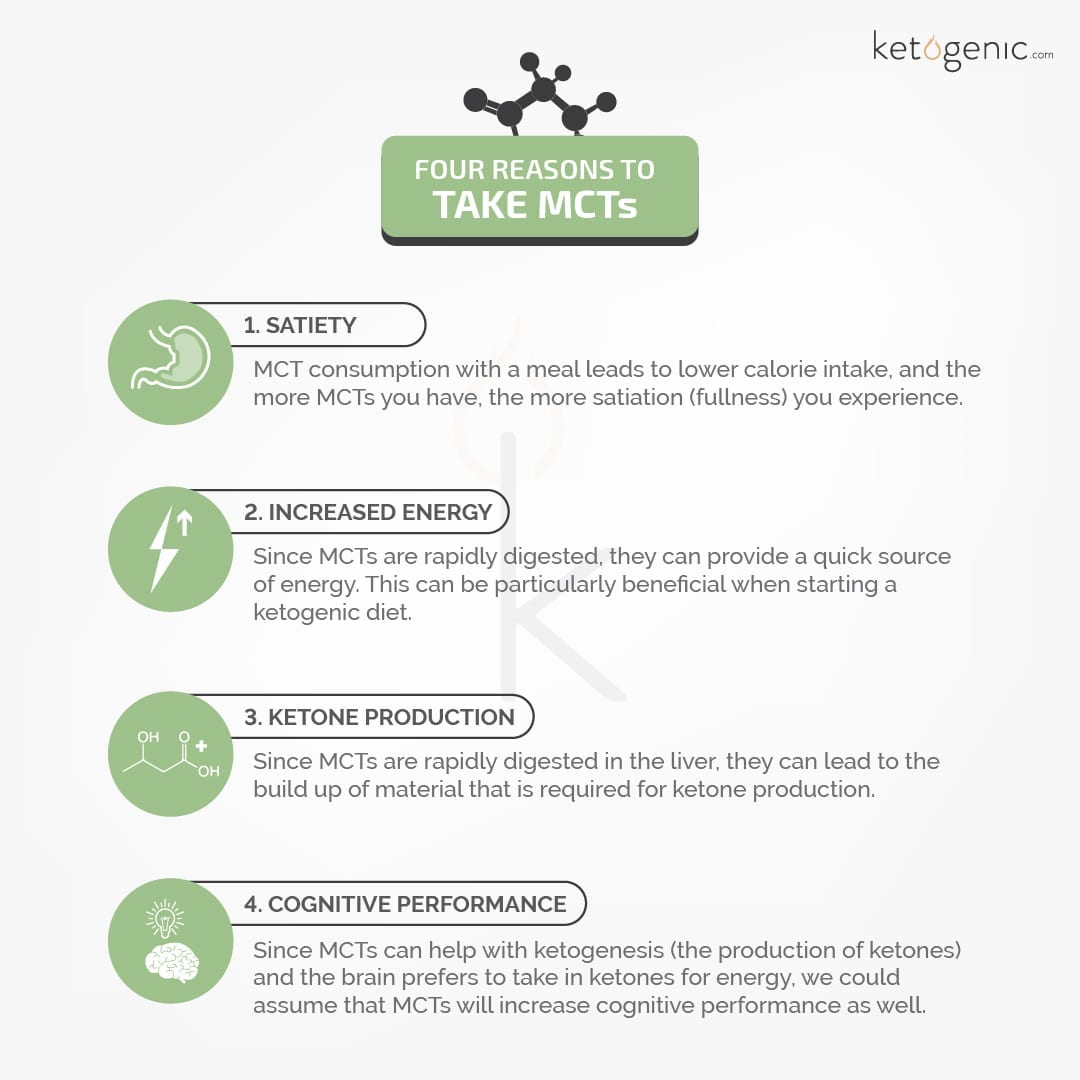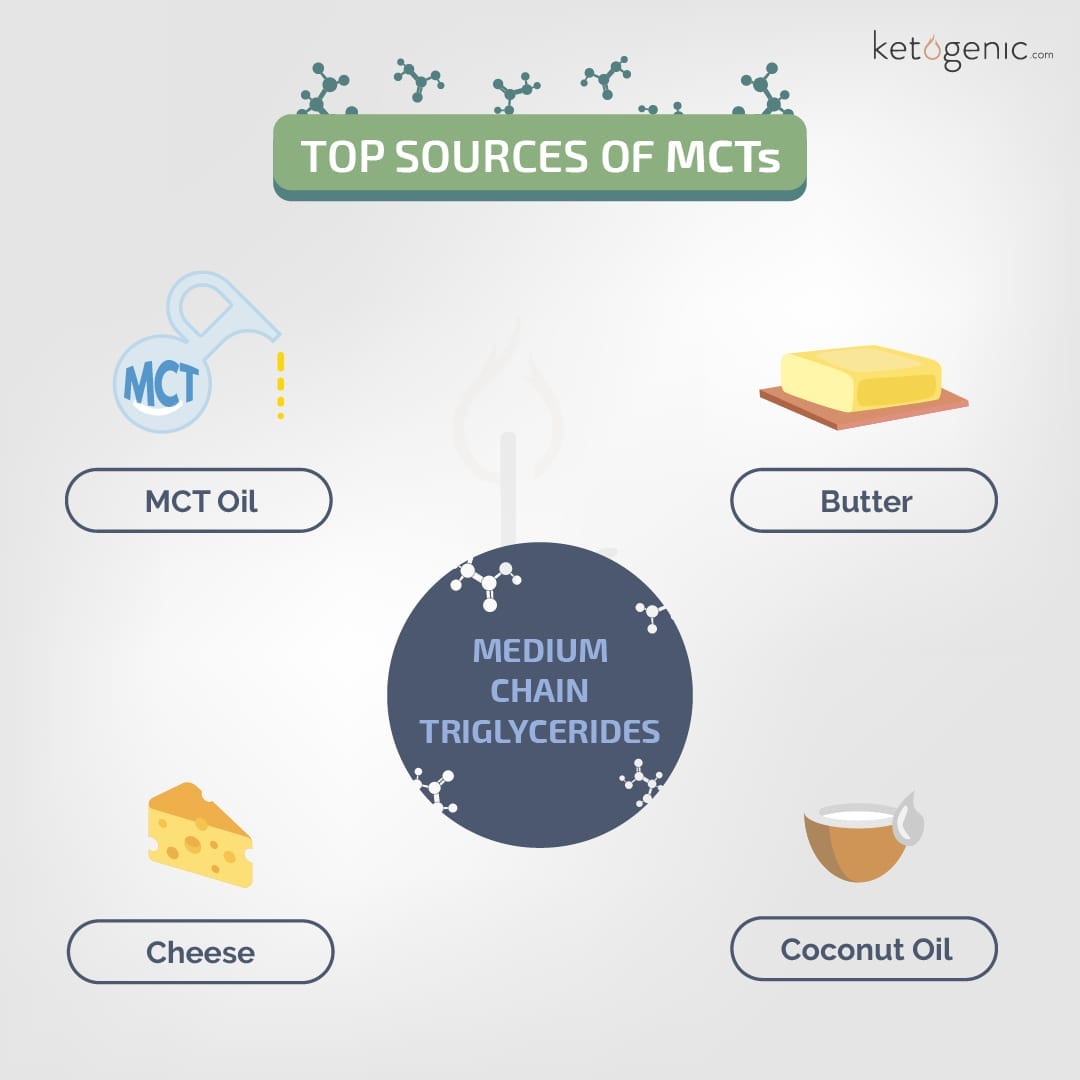
It’s common knowledge that fats broken down into ketones are the primary source of energy when in a state of keto, but did you know there’s a specific type of fat that is revolutionizing keto for health-conscious Americans? Even more important, this specific fat is making a significant impact on the lives of people with chronic illnesses. Medium-chain triglyceride (MCT) oil is an excellent supplement for any diet, keto, or otherwise. To better understand the benefits of MCT oil, we must first dive into what MCT is, and where it fits in within keto.
What is MCT Oil?
MCTs are a type of lipid (fat) that can benefit the body in many ways. MCT molecule chain-lengths are much smaller than their long-chain triglyceride (LCT) counterparts, making them easier to digest. Unlike LCTs, MCTs do not require transport into the mitochondria. Furthermore, MCTs bypass the lymphatic system and are directly transported to the liver via the portal vein, allowing for faster utilization. There is also evidence that the consumption of MCTs over LCTs has shown to lower body weight and fat mass in adults, pointing to its effects on digestion and metabolism. [1] [2] [3]
While LCTs are found in many of the foods you probably already eat on a keto diet, MCTs are a derivative of either coconut or palm kernel oil. Typically, coconut is the more popular source.
While MCT oil has a close relationship with coconut oil, studies have shown that the effects of MCT oils on the body are slightly different from coconut oils. For example, in a study examining the impact of MCT oil compared to coconut oil on food intake and satiety (state of being satisfied), MCT oil was found to increase fullness and be more palatable (tasty) than coconut oil. [4]
How Does MCT Oil Affect a Keto Diet?
As you may know, your body makes ketones on a no-carb or very low-carb diet. While typical keto diets typically utilize LCTs to produce ketones, MCT oil has proven to make more ketones than LCT, which has been hypothesized to help you reach the ketosis (fat-burning) phase more quickly. [5]
MCT oil also helps with tolerating the initial side effects of switching to a keto diet. Since MCT oil increases the feeling of fullness, it helps alleviate that initial transition to drastically reducing your carb intake as a new keto adherent. In a study that investigated whether MCT oil supplementation improves time to nutritional ketosis (NK), mood, and symptoms of keto-induction (the body’s transition from using glucose to ketones as fuel), researchers found that MCT oil does help to improve the symptoms of keto-induction (such as hunger), and possibly have beneficial effects on time to NK and mood. [6]
Benefits of MCT oil
Frequently coupled with a keto diet, the benefits of MCT oil has been proven to have a variety of health advantages, both in people looking for various benefits and those who are chronically ill.
- Bodily processes: MCT oil consumption has shown to give a healthy boost to many bodily processes. MCT oil’s effect on thermogenesis (production of heat) and satiety have proposed to help obesity by increasing energy expenditure and reducing cravings — more so than LCTs [7]
- In a study researching the effect of long-term consumption of MCT oil on body weight and fat in humans, the results suggest that the MCT diet may reduce body weight and fat in individuals, likely due to its tendency to increase metabolism rate. [8]
- Cognitive functioning: MCT oil intake also has been proven to improve cognitive functioning in more ways than one. Studies have shown that MCT intake results in cognition enhancement due to the increase of ketones in the body. However, recent data shows there may be positive cognitive effects of MCT intake that are unrelated to ketones. The findings indicate that MCTs positively affect synaptic stability (long-term points of contact between neurons) and help promote protein synthesis in the brain. [9]
- Clinical uses in chronic diseases: Not only does MCT oil have a variety of general health benefits, but it can also be a supplement to medicine for chronic diseases. For example, a ketogenic diet is sometimes prescribed to drug-resistant children with epilepsy to improve seizure control. A study has shown that inducing a ketogenic state in patients with cancer may be a useful adjunct (supplement) to cancer treatment by affecting tumor glucose metabolism and growth while maintaining a patient’s nutritional status. [10]
- MCT oils also are used to treat complications resulting from malabsorptive disorders, which relate to those disorders that don’t allow the body to absorb nutrients properly. There has also been evidence suggesting a link between MCT oil helping the symptoms of cardiovascular disease, Alzheimer’s disease, and epilepsy. [7]

How Can You Incorporate More MCTs Into Your Diet?
If you are convinced of the benefits of MCT oil and want to get started adding them into your diet, here are a few simple foods and supplements you can add to your keto diet meal plan:
- MCT oil or MCT powder
- Coconut oil
- Butter
- Cheese
- Yogurt

Have You Experienced Any of the Benefits of MCT Oil?
Let us know in the comments below!
References
St-Onge, M.-P., & Bosarge, A. (2008). Weight-loss diet that includes consumption of medium-chain triacylglycerol oil leads to a greater rate of weight and fat mass loss than does olive oil.The American Journal of Clinical Nutrition, 87(3), 621–626. doi: 10.1093/ajcn/87.3.621
Sung, Ming-Hua, et al. “Medium-Chain Triglycerides Lower Blood Lipids and Body Weight in Streptozotocin-Induced Type 2 Diabetes Rats.” Nutrients, vol. 10, no. 8, 2018, p. 963., doi:10.3390/nu10080963.
Bueno, Nassib B., et al. “Dietary Medium-Chain Triacylglycerols versus Long-Chain Triacylglycerols for Body Composition in Adults: Systematic Review and Meta-Analysis of Randomized Controlled Trials.” Journal of the American College of Nutrition, vol. 34, no. 2, 2015, pp. 175–183., doi:10.1080/07315724.2013.879844.
Kinsella, R., Maher, T., & Clegg, M. (2017). Coconut oil has less satiating properties than medium chain triglyceride oil.Physiology & Behavior, 179, 422–426. doi: 10.1016/j.physbeh.2017.07.007
Pi-Sunyer, F. X., et al. “Insulin and Ketone Responses to Ingestion of Medium and Long-Chain Triglycerides in Man.” Diabetes, vol. 18, no. 2, 1969, pp. 96–100., doi:10.2337/diab.18.2.96.
Harvey, C. J. D. C., Schofield, G. M., Williden, M., & Mcquillan, J. A. (2018). The Effect of Medium Chain Triglycerides on Time to Nutritional Ketosis and Symptoms of Keto-Induction in Healthy Adults: A Randomised Controlled Clinical Trial. Journal of Nutrition and Metabolism, 2018, 1–9. doi: 10.1155/2018/2630565
Shah, N. D., & Limketkai, B. N. (n.d.). The Use of Medium-Chain Triglycerides in Gastrointestinal Disorders.NUTRITION ISSUES IN GASTROENTEROLOGY.
Tsuji, H., Kasai, M., Takeuchi, H., Nakamura, M., Okazaki, M., & Kondo, K. (2001). Dietary Medium-Chain Triacylglycerols Suppress Accumulation of Body Fat in a Double-Blind, Controlled Trial in Healthy Men and Women.The Journal of Nutrition, 131(11), 2853–2859. doi: 10.1093/jn/131.11.2853
Wang, D., & Mitchell, E. S. (2016). Cognition and Synaptic-Plasticity Related Changes in Aged Rats Supplemented with 8- and 10-Carbon Medium Chain Triglycerides.Plos One, 11(8). doi: 10.1371/journal.pone.0160159
Nebeling, L. C., & Lerner, E. (1995). Implementing A Ketogenic Diet Based on Medium-chain Triglyceride Oil in Pediatric Patients with Cancer. Journal of the American Dietetic Association, 95(6), 693–697. doi: 10.1016/s0002-8223(95)00189-1









